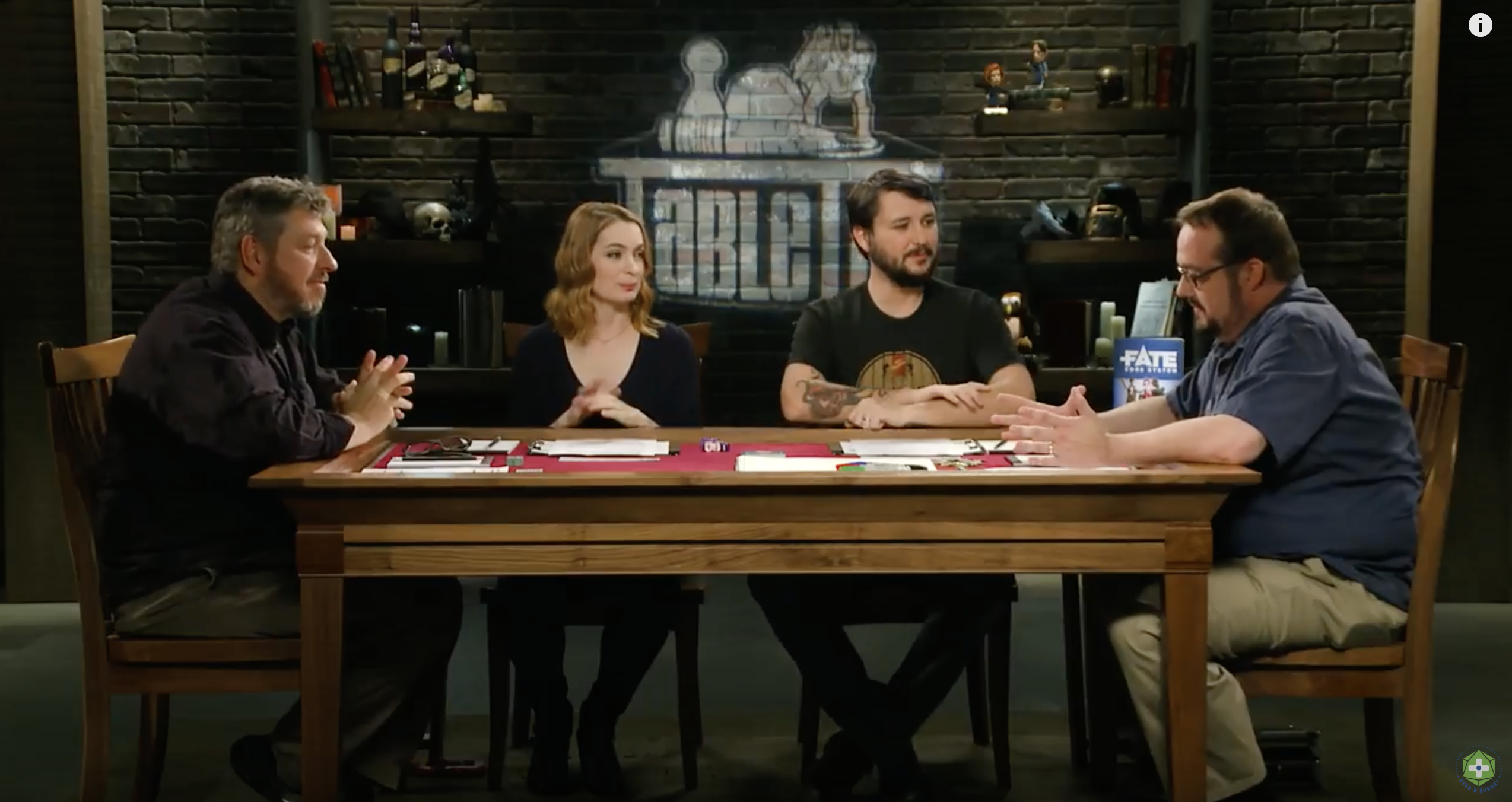While the show Tabletop normally focuses on boardgames, it occasionally dips into tabletop roleplaying games. A couple of years ago, Will Wheaton and his friends played Green Ronin's Dragon AGE; and now they've turned their attention to Evil Hat's Fate Core. This episode of Tabletop features Felicia Day, screenwriter John Rogers, Will Wheaton, and GM (and co-designer of Fate) Ryan Macklin. Wheaton describes Fate as the gold standard of games which let the rules get out of the way so as to focus on the story.
[video=youtube;NOFXtAHg7vU]https://www.youtube.com/watch?v=NOFXtAHg7vU[/video]

[video=youtube;NOFXtAHg7vU]https://www.youtube.com/watch?v=NOFXtAHg7vU[/video]

